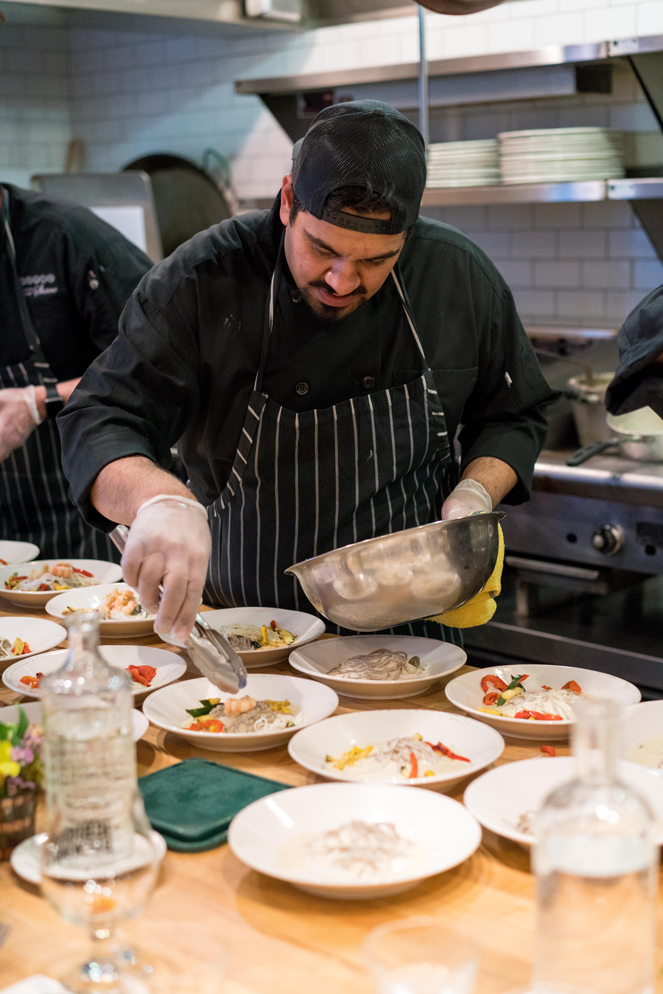Top Take-aways from the 2019 BDO Restaurant CFO Bootcamp
Last week, I had the opportunity to attend the annual BDO Restaurant CFO Bootcamp. Below is a recap and my top take-aways from this year’s event.
BDO Restaurant CFO Bootcamp 2019 At-a-Glance
Each year, BDO gathers CFOs, Controllers and other finance, tax and accounting professionals from the restaurant industry for peer-to-peer networking and informative presentations on industry-specific topics.
This year’s event was held in Nashville, TN and was attended by representatives from both franchised and independent restaurant groups around the country.

As a CPE-qualified conference for accounting professionals, there were several sessions dedicated to technical accounting topics, such as strategic tax implications for 2019 and best practices around accounting for tip credits so as to avoid potential litigation around back wages.
As an annual sponsor of the BDO Restaurant CFO Bootcamp, we always find this gathering extremely valuable. BDO facilitates an effective environment for industry executives, representing leading restaurant & hospitality groups to share insights and best practices, as many folks are tackling the same challenges.

Key Take-aways from the 2019 BDO Restaurant CFO Bootcamp
Below are some of the key operational and financial management take-aways from the 2019 BDO Restaurant CFO Bootcamp.
It’s tough to keep good talent.
Attracting, training, and retaining talent is more difficult than ever. Good employees are leaving for other industries because of the challenges of keeping them happy.
Of companies surveyed, 70% of staff turns over, annually. Whether it’s compensation, the lifestyle, the work/life balance, it seems to be or it is harder to keep all talent happy, but especially the talented folks.
Prime Cost management remains a huge challenge.
Where it used to be relatively common for a restaurant to expect a profit with 60% prime costs, that conventional wisdom is being upended…mostly because of higher wages. Combine that with rising food costs and rents, and it’s getting more and more difficult to squeeze out a profit.
The operators that are continually evaluating their costs and identifying ways to streamline their business processes are the ones who will be successful.
All organizations (big and small) must embrace technology.
ALL restaurants must embrace automation, rely on predictive insights, and need to hold folks accountable. The only way to do so is with accurate data.
Check out the quote at the bottom of the post from the 2019 Q1 BDO Restaurant Industry Scorecard.
Timely, accurate data is critical.
The industry as a whole is becoming more and more data-driven. Having access to the data is major first step; however, having access to that data as quickly as possible in order to take action is critical.
Those operators that are able to build processes and implement technologies, such as invoice processing, to gain access to timely, accurate data are able to make well-informed, cost-effective decisions.
Quicker and more frequent period closes is a financial management best practice.
As a best practice, restaurant accountants should be closing out the previous month in no more than one week after close in order to identify issues as soon as possible.
In fact, some restaurant finance professionals are recommending that restaurants get in the practice of micro-closes once per week in order to really have timely access to information that can make a break a period or a restaurant’s chances of success.
Of course, xtraCHEF helps with having real-time food cost visibility allowing you to stay ahead of discovering any financial management catastrophes at the end of the month.
BDO’s Restaurant Industry Scorecard
For more excellent research on the state of the industry, check out the BDO Restaurant Industry Scorecard.

Here’s a quote from the 2019-Q1 edition with which we happen to very strongly agree:
“As restaurants seek to mitigate the impact of labor costs, which continue to rise and exert the most significant downward pressure on margins, they are focusing on variables they can control: namely, cost of sales and managing inventory—for example, by challenging broadline vendors on prices and controlling portion size and waste. Restaurants should absolutely be utilizing software that analyzes actual versus theoretical food and beverage costs in order to address potential lost opportunities for better margins and to make informed decisions on how to improve those margins.
In commodities, the cost of fresh vegetables rose 19% while the cost of eggs, which were up 54.2% at the end of 2018, fell -32.2%. Beef rose 2.8%; poultry, cheese, and wheat all posted declines. The cost of pork was down (-7.8%), even as the outbreak of African swine fever in China spread: China’s hog herd may fall 30% to 40% in 2019, according to some estimates, but this may not have a material impact on U.S. pork prices, as the USDA predicts U.S. production to rise 5% this year.”
To find out where the xtraCHEF team will be next, be sure to check out Events.


